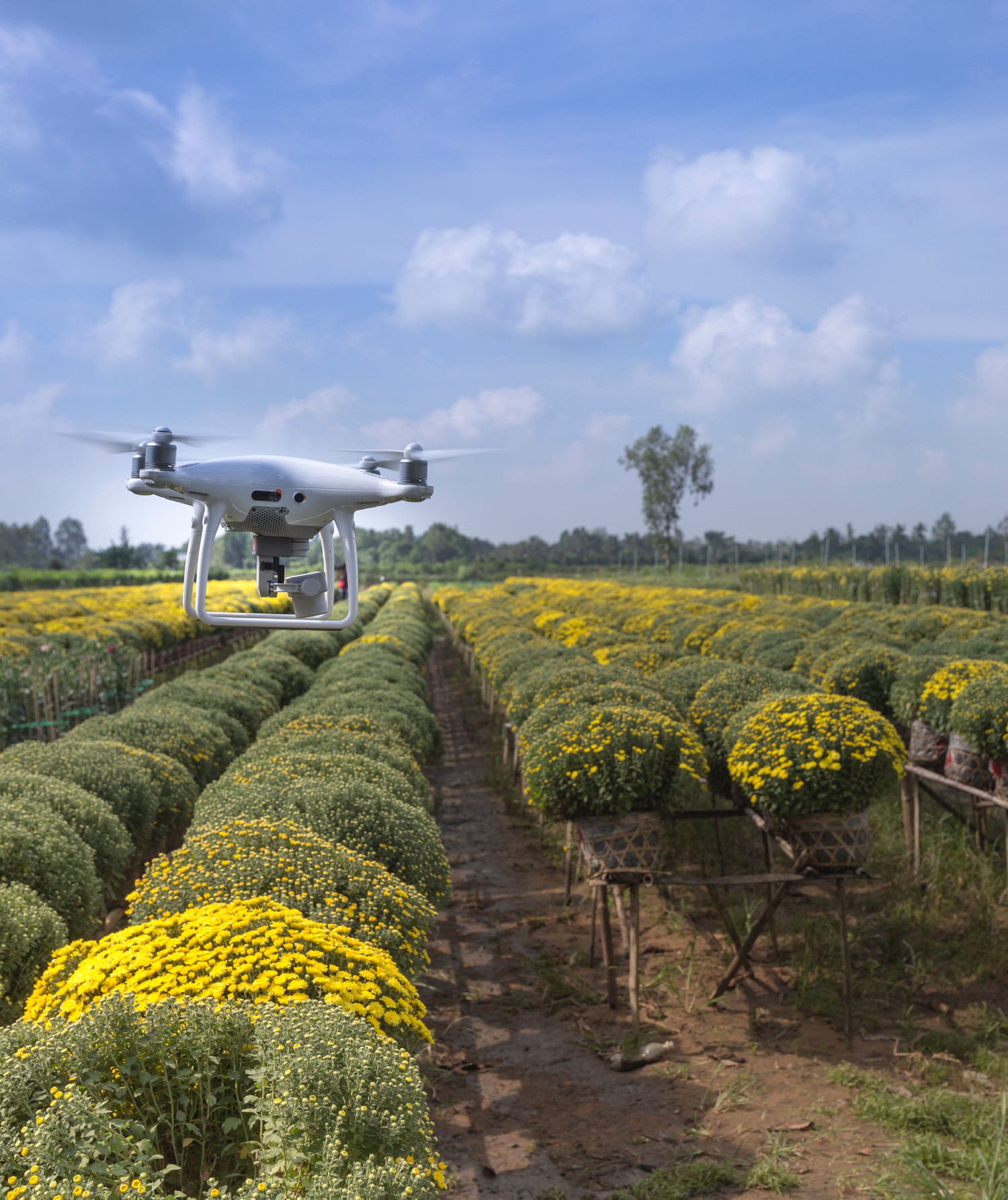
Frequently Asked Questions
You can find a number of frequently asked questions about our calls for proposals and applications on this page. Please read them carefully. For more information and queries, you can reach out to our central access manager (see contact details below). For general information about the project, please refer to our contact details on our homepage.
—
Eligibility
AgroServ launches calls for proposals open to scientists (researchers, PhD students, master's students) working in academia and the industry wishing to access the AgroServ research services and installations.
Access is granted on the basis of scientific excellence to ensure feasibility of the projects and their scientific quality.
These calls for proposals or "transnational access calls" are open to scientists from:
EU member states
(And to a limited extent) groups from emerging countries or international research centres (20% of the total available capacity)
In addition to this criterion, a number of other criteria apply:
i) Proposals need to be interdisciplinary (Please refer to the details below).
ii) Applicants should apply for transnational access (Please refer to the details below).
iii) A legal and and ethical consent needs to be obtained prior to sumitting the final application (Please refer to the details below).
i) Proposals to access the AgroServ research services should be Interdisciplinary
Researchers (potential users) or research groups (potential user groups or a user consortia) interested in using the AgroServ services should submit proposals of projects that address interdisciplinary topics related to agroecology to enable the interaction of communities of researchers in widely separated areas.
ii) Applicants should apply for transnational access
Applicants should request to use at least two different services from the AgroServ services portfolio (see catalogue of services). In fact, the services selected should be managed by two or more research infrastructures (RIs) affiliated with AgroServ (see the list of the AgroServ RIs).
The transitional interdisciplinary access can include different types of services and can be mixed within one project:
- Physical access: access in person, with scientists (users) physically visiting the facility.
- Remote access: services offered without the scientists physically visiting the facility (e.g. access to samples, etc.).
- Virtual access: access to data or models including the organization's cloud, data centres, etc.
Examples and some specific cases:
- applicant(s) working in a country “A”, can only apply to access research services located in a country “B” (i.e. they must work in a country different from the country(ies) where the installations/services are located). Exception: This rule does not apply to: international organisations, JRC, ERIC or other similar legal entities.
- If research services or installations are all located in the same country, then the main researcher (main user) and most of the members of the research group applying for access (>half of the user consortium) must work in a country other than the country(ies) where the installations/services are located.
- If three or more different RIs, or installations in three or more countries are selected : the research group (user group/user consortium) is eligible to apply without taken into account the majority rule.
- Researchers from a partner institution/organisation (project beneficiaries) can participate, according to the above rules, but can’t lead a team.
- Only research groups (constituted by one or more researchers) that are allowed to disseminate the results may benefit from the access (an exception is made for SMEs).
iii) Legal and ethical consent
For the full application (after the approval of the pre-proposals) the applicants will need to obtain legal and ethical consent regarding their research, transfer of biological material, and their data management approaches.
Please refer to our Ethics and Data Policy Page for more information
The AgroServ portal provides a comprehensive service catalogue. You can use advanced search options, filtering, and visualisation functionalities to find services and resources that match your research requirements. Some of the scientific domains covered include:
** Agricultural Sciences
** Natural Sciences
** Biological and Medical Sciences
** Medical and Health Sciences
** Microbiology
** Chemistry and Material Sciences
** Earth and Environmental Sciences
** Engineering and Technologies
** Information Science and Technology
** Humanities
** Social Sciences
AgroServ covers a wide range of services and resources for agricultural research. If your research involves disciplines related to agriculture, plant sciences, or similar fields, and if you want to address interdisciplinary topics related to agroecology, then it's likely within the scope of the project. Browse the detailed service descriptions to see if they align with your research needs.
—
The application procedure
To apply for access, you need to read our “Application Procedure” page carefully. Then, you need to visit the AgroServ Catalogue of Services
The application portal will be re-opened and accessible during the next call.
Follow the Appplication Guidelines to fill out the application form and submit the required documents. Make sure to respect the deadlines and eligibility criteria before submitting your application.
Yes, access is also open to researchers from other countries but to a limited extent: 20% of the total available capacity.
You can apply for multiple services and resources that align with your research. However, you need to detail how each service contributes to your research project in your application.
—
Evaluation and Implementation
Applications undergo a thorough evaluation process based on the project's scientific quality, alignment with the infrastructure, and feasibility. The evaluation committee assesses each application to ensure fair selection.
Once submitted, the proposals will be evaluated as follows:
- Step 1: The proposal will be checked for eligibility by the access management team.
- Step 2: Anonymised proposals will be reviewed and evaluated by a panel of external independent reviewers through an independent peer reviewing process.
- Step 3: Based on the recommendations of the reviewers, proposals will be ranked according to their scientific merit and compliance with the agroecology framework of research and selected for transnational access.
- Step 4: Access is granted to the project proposals selected.
The evaluation criteria for the submitted final proposals are as follows:
Feasibility - the panel of experts will evaluate the feasibility of the proposals based on the following:
> Is the description of the feasibility convincing and are the following questions sufficiently addressed?
> Was a scientist in charge of the selected installation or service contacted?
> Was the feasibility discussed with scientists of the installations/services in the preparation of the proposal?
NOTE: AgroServ access projects are not feasible if, e.g., the applicant did not contact the installation scientists (Access Providers) and/or did not discuss the details of the proposed access project.
IMPORTANT: scientists are only able to submit their proposal if the feasibility has been checked together with the service/installation providers within the proposal phase.
Excellence - the scientific quality and innovative nature of the proposal, including the interdisciplinarity approach needed in the context with AgroServ.
The scientific quality of the proposal will be evaluated as follows:
> Is the introduction, background of the proposed AgroServ access project, previous work related to the AgroServ access project sufficiently described to justify the performance of the proposed project?
> Does the proposed work address a relevant question with scientific or technological objectives to answer basic and applied questions related to sustainable and resilient agriculture and agroecological transition, incl. one health approach?
> Is the AgroServ access project extending or complementing previous work and available data?
> How is interdisciplinarity described?
> Is the experimental design correct? Please assess the work plan with respect to: experimental conditions, duration, traits to be measured, experimental design, cross-disciplinarity etc.
Expected outcome
The expected outcome of the proposal will be evaluated as follows:
> Will the proposed work result in a scientific publication?
> Which substantial progress may be provided by the potential results in that research field?
If your application is successful, you will receive a notification with further instructions to follow. You'll be provided with access details, scheduling information, and any necessary training or orientation sessions before you start using the requested services and resources.
—
Funding and expenses
Access to the AgroServ research services and installations is free of charge for all successful candidates (scientists from EU member states, EU associated states and other international research groups).
Scientists are granted logistical, technological and scientific support and the specific training required to successfully complete the approved transnational access projects.
Therefore, selected proposals obtain full support to perform the proposed experiments including:
a) Free access for eligible groups to research installations
b) Support for travel and accommodation for a period to be determined with the Access manager at the beginning or at the end of the research
b) On-site logistic support by the infrastructure staff
c) Access to the knowledge and the know-how necessary to complete the proposed experimental work
—
Reporting and Publication
Once the access is granted, the research conducted and the project completed, each research group leader is requested to provide a project report to the AgroServ management office within one month following the completion of the access using an online reporting portal.
The main points that needs to be covered in the report are:
a) Units of access
b) Duration of access and dates of visits
c) Description of performed work + main achievements (key results)
d) Potential publication of the results: How do you want to publish the data?
Additionally, an on-line AgroServ internal questionnaire must be filled by the research group leader to evaluate and improve the quality of access.
It is also possible to provide a short video report on the Transnational Access. The video report should be short and concise and no longer than 2-3 minutes.
If the access granted to the project selected exceeds six months, a mid-term report is requested and needs to be submitted on the reporting platform (the link will be shared with the scientists.
Scientists should acknowledge the funding from AgroServ to access the services provided by the Research Infrastructures affiliated with the project in any publications or presentations that include data produced under the transnational access programme (TNA).
By default, researchers are expected to publish their results within a reasonable time. Researchers agree that any publication resulting from work or activities carried out under the AgroServ Transnational Access programme must acknowledge the support of AgroServ.
We recommend to include the following sentence:
"Financial support from the AgroServ Horizon Europe Project to access the services provided by the Research Infrastructures affiliated with the project is gratefully acknowledged".
